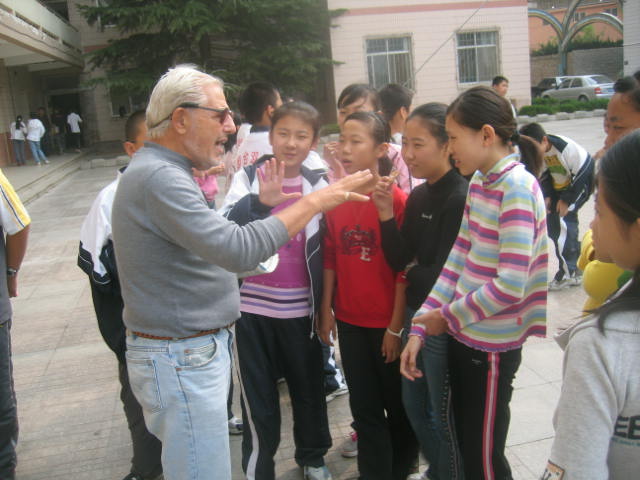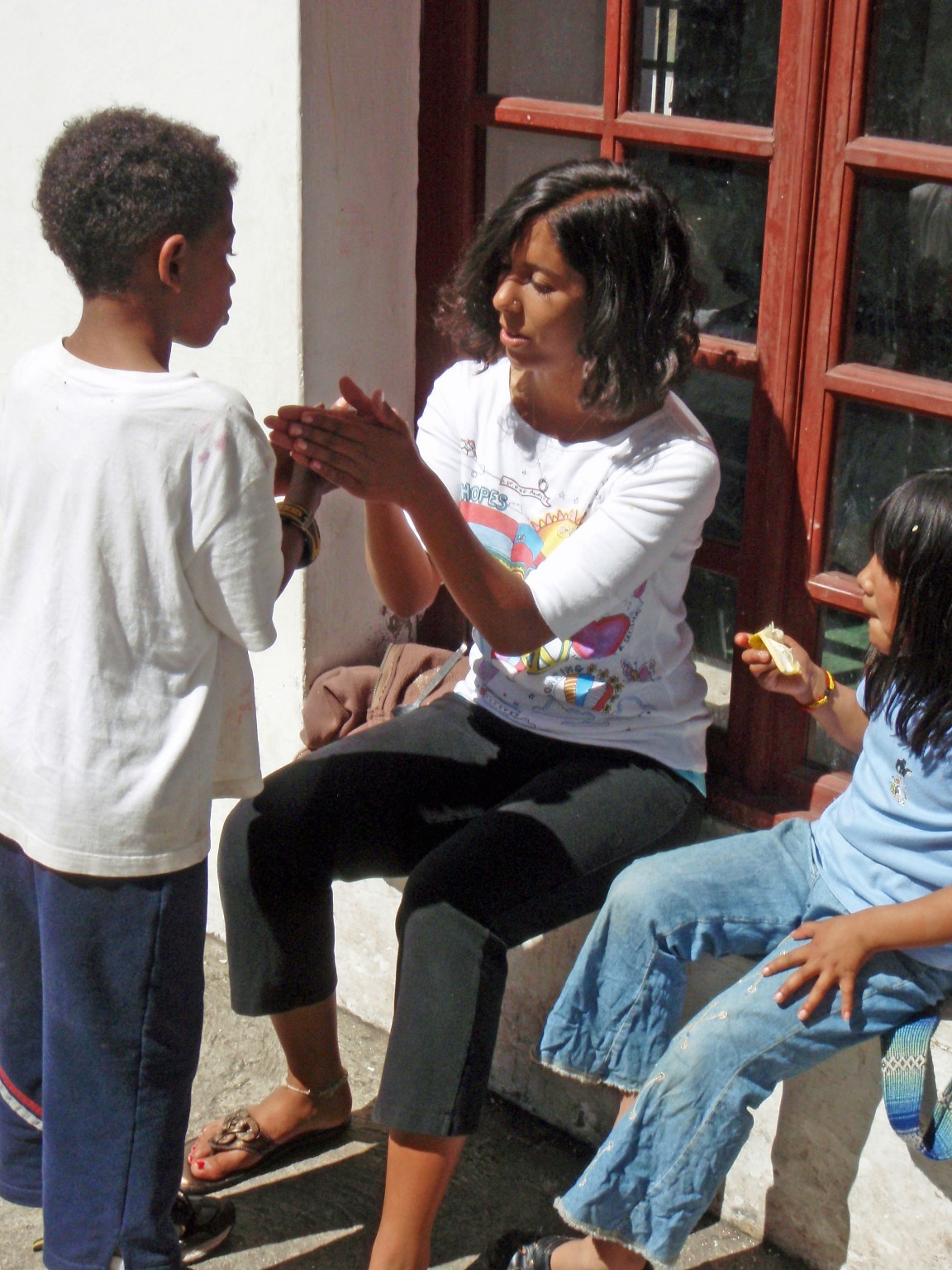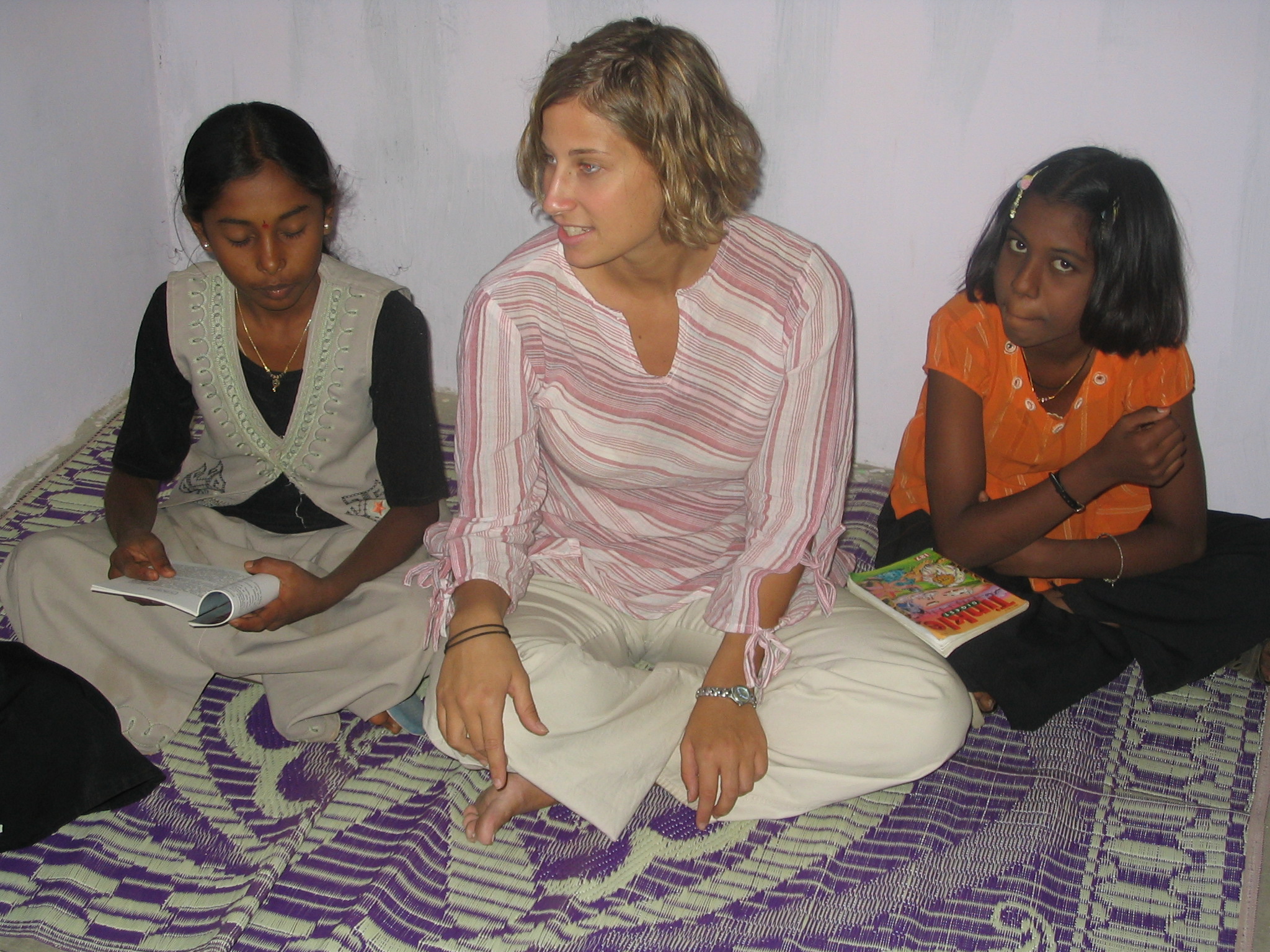Volunteering as a concept and practice continues to grow both locally and abroad. People are understanding more and more that volunteering has benefits not just for those in need but the volunteers as well. However there are some myths about volunteering abroad that you should be aware of.
Since I started Cosmic Volunteers in 2001 I have seen increased opportunities for international volunteering not only through non-profits like mine but also through government and corporate programs.
That’s the good news — more and more people are getting involved in volunteering abroad.
But one of the major challenges for new volunteers is understanding the more existential aspects of service trips.

For example there are many myths about volunteering abroad, including “Saving The World” syndrome (spoiler alert: you won’t!).
So, let’s talk about saving the world and other myths about volunteering abroad.
5 Myths About Volunteering Abroad
Myth #1: You Can Save The World
I am always thrilled when someone signs up for our volunteer programs abroad. It shows me a lot of positives about someone’s character that they are willing to travel halfway around the world to help others.
It is admirable that our volunteers want to have a positive impact on people’s lives abroad. After all, that should be why you sign up to volunteer!
But please understand that you will not “save the world” while abroad. This is one of the biggest myths about volunteering abroad!
In fact if you even have the phrase “save the world” in your vocabulary, you are in for a rude awakening abroad and your stay will be filled with major disappointment and disillusionment.
Billionaires with more resources, contacts and experience than yourself have already tried to save the world — and failed! So don’t even try.
Focus your service trip instead on learning, sharing, and being of service to others. If you can make even one person’s life a little bit better, then the trip was worth it.
Myth 2: You Gotta Be Young to Volunteer
Age is another of the common myths about volunteering abroad.
Students from high schools and colleges have made up the majority of our volunteers over the years. However they are not the only age group that volunteers abroad.
The Corporation for National and Community Service reports that older Americans, including Baby Boomers and members of the Silent Generation, tend to volunteer more hours than many other age groups.
In 2015, the age groups with the highest median hours among volunteers were ages 65-74 (88 hours) and those 75 and older (100 hours).
What kinds of volunteering are we talking about? Most of the service takes places in their local communities close to home. But in our world of volunteering abroad, we see many mature volunteers who take on the challenge to travel to another country on service projects.
Perhaps the “best” volunteer I’ve ever met was Len from Chicago who served as a volunteer teacher in China. Long retired from a career in finance, Len had everything you want in a volunteer — enthusiasm, skills, experience and an ability to connect with anyone including young school kids in China.
Here’s Len holding court in Yantai, China:

Myth #3: You Can Just Show Up
Many people go on service trips abroad with a group from home like with their church congregation or a university sorority. There’s no doubt about the positive camaraderie and efficacy that comes with volunteering in a group.
But there can be a tendency for volunteers in groups to be more passive, to let others take the lead. To not “think” and act with their own mind and heart.
While we have always welcomed groups into our programs, there are also many participants who volunteer abroad as individuals. They are usually the sole volunteer at a project and often the only foreigner even living in the local community.
With both groups and individual volunteer, we will prepare you all of you via conversations, documents and orientations. We also provide local 24 hour support and guidance to all of you.
But for individuals, most of the challenge of living and volunteering in this new culture will be entirely on you. You are not expected to know everything. But the key is to proactive and jump in and start offering your help right away.

For example, as an individual volunteer you will not have every minute of every day intricately planned for you. You must be a resourceful, self-starter who can handle situations where schedules are sometimes non-existent and resources are scarce.
It is crucial that when you show up to, say, volunteer in Ghana, you are ready to learn firsthand about the culture and community and specific needs. And how you can contribute to helping with those needs.
How? Listen! Interact with people. Ask questions. Be humble. Don’t wait for someone to hold your hand and walk you through each moment.
Myth #4: You Can Volunteer For Free
Paying a program fee to a western-based organization like Cosmic Volunteers has become one of the standard options today for newbies to volunteer abroad.
The program fee pays for things like a volunteer’s meals, accommodations, airport transfers, insurance, visa assistance, 24-hour emergency support, and the volunteer placement itself.
Another option is to volunteer abroad “for free” by self-arranging your trip. Thus avoiding paying a program fee to an organization like ours. However this is just another of the myths about volunteering abroad.
I have no reservations about advising people on how to self-arrange a volunteering trip for free. In fact I’ve even written an article explaining how to do it. (My goal has always been to connect people internationally for mutual benefit, however that may happen.)
But keep in mind that there is no such thing as a truly “free” volunteer abroad experience. Again, one of the myths about volunteering abroad.
First, even if you avoid paying a program fee, you will still be responsible for paying for items that the program fee would have covered (meals, room, ground transport etc.).

Next, how are you going to find a volunteer placement? You can certainly so this yourself, but it will probably take a lot of time.
You will need to research and vett potential volunteer placements abroad yourself.
You can do this in-person by going to the host country and visiting placements (schools, clinics, AIDS orgs).
But most people of course start their search online from home. However, as someone who has seen probably over 5,000 websites of “organizations” abroad who say they take volunteers — I can tell you that it’s truly a jungle out there online; it’s incredibly difficult to judge these folks if you don’t visit them or at least talk to tons of their former volunteers.
Finally, and most relevant — Most local organizations in the host countries (like orphanages and AIDS groups) “require” volunteers to make a cash donation in order to volunteer with them. I’ve seen this fee range from $100 to nearly $1,000 USD.
These donations requirements are rarely published or even spoken about by the directors of the local organizations. Instead the local staff will constantly bombard the volunteer with tales about the facility’s lack of funds, until it’s uncomfortable for the volunteer NOT to donate cash or goods.
Myth #5: You Need Lots of Vaccinations
Vaccinations are always one of the most asked about topics from volunteers and their families.
First, I tell volunteers to follow the recommendations of their government. In the U.S. that means the Centers for Disease Control and Prevention.
Next, you should consult a travel medicine provider — at least two months before your departure. This will allow sufficient time for any immunization schedules to be completed.
Keep in mind that most host countries do not require any vaccinations for entry. (The major exceptions are many African countries like Ghana and Kenya which require all travelers to get a Yellow Fever Vaccination.)
The decision to get vaccinations for your volunteer trip abroad therefore largely ends up being a personal one.
In our experience and that of our volunteers, medical providers often make vaccinations for your trip seem mandatory. As in, if you don’t take these malaria pills, you will likely get malaria.
If the provider is being helpful, they should tell you that many vaccinations are not even close to 100% protective.(Many studies place Malaria pills at less than 50%).
I am NOT an anti-vaxxer though. Quite the contrary.
I agree with the CDC that you should be up-to-date with routine vaccinations such as measles/mumps/rubella (MMR) vaccine, diphtheria/pertussis/tetanus (DPT) vaccine, polio virus vaccine, etc.
But when it comes to the more “exotic” diseases — malaria, typhoid, and even rabies — the vaccines have limited efficacy; they are usually very expensive; and they come with potentially major side effects.
Whether you get vaccines or not, focus on your behavior to avoid illnesses abroad:
> For malaria: use insect repellent, long sleeves, long pants, sleeping with a mosquito net, and using an insecticide-treated bednet.
> For typhoid: avoiding street food and contaminated water and use hand sanitizer often.
(Also keep in mind that the most frequent health problems faced by international travelers are not preventable by vaccines. The most common maladies experienced by volunteers abroad are travelers diarrhea and colds/flu’s. Two of the leading causes of injury and death for travelers abroad are drowning and road accidents.)

